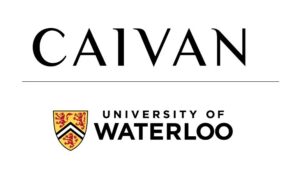
Future Cities Institute launched to address urban issues
By Adam Freill
Construction InfrastructureInstitute tapping cross-sector leaders to solve the most challenging and urgent issues facing global cities.
 The University of Waterloo and Caivan Group, an Ontario-based developer, are launching the Future Cities Institute (FCI), an initiative aimed at tackling challenges cities face, ranging from planning to infrastructure.
The University of Waterloo and Caivan Group, an Ontario-based developer, are launching the Future Cities Institute (FCI), an initiative aimed at tackling challenges cities face, ranging from planning to infrastructure.
The institute, which is being made possible through a $10-million commitment from Caivan, aims to arm some of the top minds in the country with the resources needed to address issues facing urban spaces now, and in the future.
The interdisciplinary hub will be housed within Waterloo’s Faculty of Environment and will draw on expertise from across faculties while leveraging partnerships with industry and government. The expectation is for FCI to take on big issues like the modernization of city planning, the optimization of infrastructure and sustainability. When announcing the creation of the organization, the university and the executives at Caivan said root-cause examinations of pressing issues like housing and urban transportation will help lead to the development of data-supported toolkits and practical guides for industry and government.
“I’m excited to see our researchers joining forces with industry experts like Caivan to combine their considerable knowledge and apply it to solving the complex challenges cities of the future will face,” said University of Waterloo president and vice-chancellor Vivek Goel. “This is the kind of innovative, forward-looking partnership we need to embrace if we truly want to solve humanity’s most challenging issues. We need academic excellence; we need on-the-ground expertise; and we need those two things to work together. I’m proud that this is happening at Waterloo.”
Caivan CEOs and co-founders Frank Cairo and Troy van Haastrecht, both alumni of the University of Waterloo, have supported the school’s Future Cities Initiative since 2021, donating an initial $1 million to seed the initiative.
“The University of Waterloo is renowned globally for the quality of its graduates, its innovation and cutting-edge research. It’s this track record that the Future Cities Institute will leverage to build a healthy, resilient, and prosperous future for all,” said van Haastrecht. “Our cities’ problems are complex, but the institute’s success metric is simple: devising solutions that will make a difference in the world.”
“The number and magnitude of challenges humanity will be confronted with in the decades ahead will test our resolve and our ability to effectively collaborate,” added Cairo. “The institute will foster thought-provoking debate, challenge orthodoxy, and produce research that allows city builders to make evidence-based decisions. The pursuit of science and truth is the unifying element in this age of growing dogma.”
In addition to the current master in future cities program, FCI will also offer a master of engineering (MEng) degree in future cities, a graduate diploma program where students from graduate programs will be eligible to specialize in future cities.
The FCI will be led by director Leia Minaker, an associate professor in the School of Planning. FCI will also be overseen by an advisory board to ensure curriculum alignment with the overall future cities vision.
“The world is urbanizing faster than ever before, and the future is uncertain,” said Minaker. “Future cities will explore the trends, innovations, and technological disruptions to help us craft policies and practices that better anticipate change. To do that, academics and planners need to work directly with the people and companies who are on the ground day-to-day building cities, developing new technology, and making consequential decisions. I’m excited to venture into uncertain territory with a diverse group of experts committed to building sustainable and thriving cities.”




